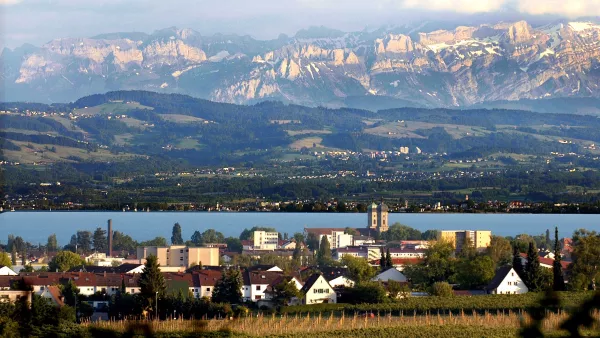Portrait
REALISING POTENTIAL. SHAPING THE FUTURE.
RWU is a university of applied sciences in one of the strongest economic regions in Europe. The range of courses in the fields of technology, business and social sciences is characterised by a strong practical orientation and close contact between all stakeholders. On RWU's family-like campus, students can test and expand their potential and shape the future in interdisciplinary dialogue.
Around 3,600 young people from all over the world study at RWU. Partner universities on all continents enable valuable experiences abroad. Studying at RWU is more than just acquiring knowledge: Talents are discovered and fostered here, personalities grow here, and friendships for life are formed here.
Organisational chart
The organisational chart shows the internal structure of our university. You can find more detailed information on the individual organisational units (also called "institutions") by following the link under "further content".
Downloads
- RWU Organigramm
Further information
History
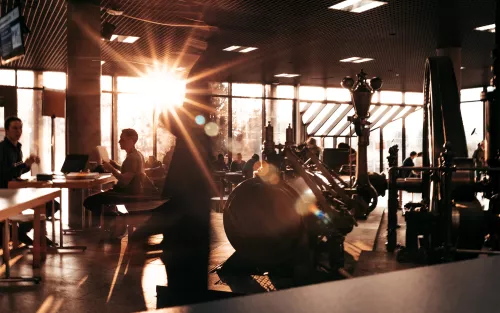
1964-1982
October 1964
Opening of the State School of Engineering (SIS) in Ravensburg and start of teaching with two departments: Mechanical Engineering and Physical Engineering.
October 1971
Transition of the State Engineering Schools to Universities of Applied Sciences and the introduction of the Rectorate Constitution.
March 1973
First elected Rector: Professor Dr. Karl Dieter, Prorector: Professor Dr. Wolfgang Brauch.
November 1971
The state government decides to relocate the Ravensburg University of Applied Sciences to Weingarten.
October 1982
Studies begin in the main building in Doggenriedstraße in Weingarten with around 870 students.
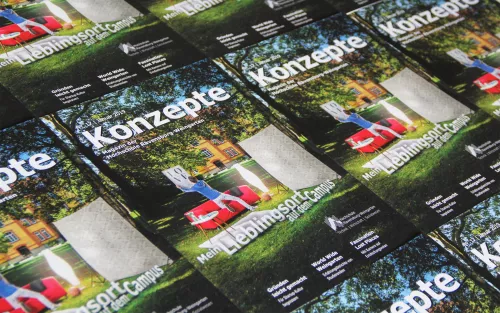
1983-2007
Winter semester 1989/1990
25 Years University of Applied Sciences Ravensburg-Weingarten
July 1999
1st issue of the university magazine "Concepts
November 2004
The University of Applied Sciences celebrates its 40th birthday. The highlight of the events in the anniversary year is the Alumnifest on 27 November 2004.
January 2005
Henning Rudewig replaces Peter Holländer as Administrative Director.
Spring 2005
The "Ravensburg-Weingarten University of Applied Sciences" is now called "Ravensburg-Weingarten University of Applied Sciences".
Winter semester 2005/2006
The university now only offers Bachelor's and Master's degree programmes.
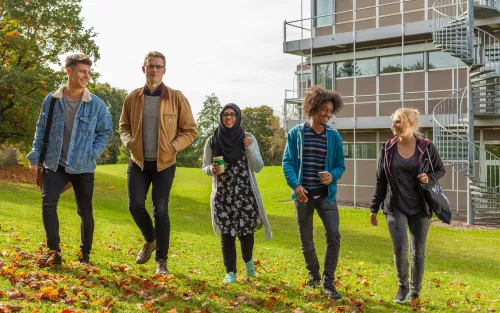
2008-2013
September 2008
The new Rector, Professor Dr. Thomas Spägele, takes office. Professor Dr. Franz Brümmer and Professor Dr. Michael Pfeffer take office as Vice-Rectors.
August 2009
The first racing car of the Formula Student Team is completed.
February 2012
The universities of Aalen, Esslingen, Heilbronn, Mannheim, Ravensburg-Weingarten, Reutlingen and Stuttgart Media University network within the Hochschulföderation SüdWest (HfSW).
December 2012
The Chancellor of Ravensburg-Weingarten University, Henning Rudewig, was confirmed in office for another eight years.
July 2013
The Rector of Ravensburg-Weingarten University of Applied Sciences, Professor Dr. Thomas Spägele, begins his second eight-year term.
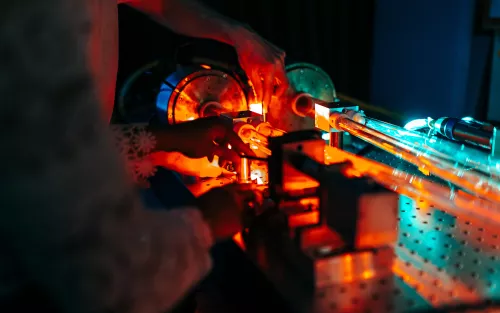
2014-2016
March 2015
Since 15 March 2015, Ravensburg-Weingarten University of Applied Sciences has been certified with the "audit familiengerechte hochschule" (family-friendly university audit), thereby increasing its attractiveness as a place to study, work and research.
December 2015
New Campus App: Students can conveniently use the Campus App on their smartphone to find out about their lecture schedules, grades or the dining hall schedule.
February 2016
The "International Conference on Optics-photonics Design and Fabrication" (ODF) will take place in Western Europe for the first time from 29 February to 2 March 2016. Around 170 optics experts from all over the world will be guests at Ravensburg-Weingarten University of Applied Sciences.
December 2016
Twelve students from the Israeli University Technion in Haifa are visiting the University of Applied Sciences in Weingarten for a project week. In the "Formula ATID" project, German and Israeli students work together across national borders.
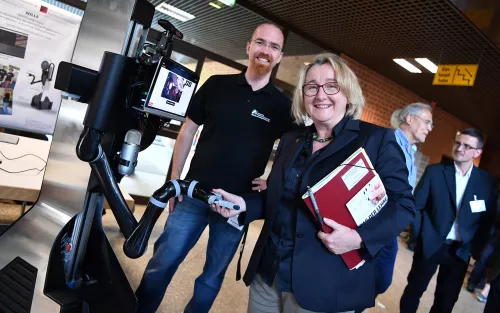
2017
January 2017
In its meeting on 26 January 2017, the Senate of Ravensburg-Weingarten University of Applied Sciences elected Professor Dr. Zerrin Harth to the office of Prorector. The newly tailored area of responsibility includes the topics of diversity, continuing education and student life.
March 2017
In the Wirtschaftswoche ranking, Ravensburg-Weingarten University takes ninth place in business informatics - a top result considering that it is a nationwide survey.
April 2017
Another milestone for a forward-looking university: on 28 April, the groundbreaking ceremony for the construction of the new e-mobility laboratory is held.
May 2017
Science Minister Theresia Bauer is a guest at Ravensburg-Weingarten University of Applied Sciences on "Teaching Day".
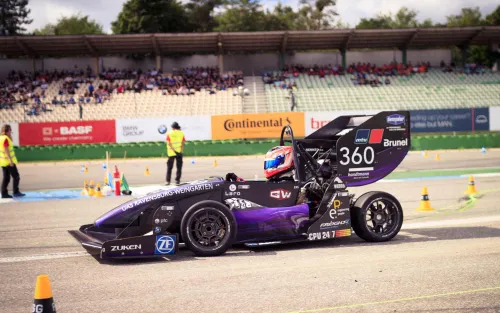
2018
March 2018
The University Federation SouthWest (HfSW) is opening a contact office in Pune, India. In the future, the branch office will serve both as a contact point for Indian university applicants and intensify the networking of the higher education institutions with the universities and companies located there.
May 2018
The Formula Student Team Weingarten celebrates its tenth anniversary and has built two racing cars for the first time to mark the occasion. Thus, the Combustion vehicle "Stinger18c" and the Driverless vehicle "Stinger18d" were ceremoniously unveiled in front of more than 200 guests.
June 2018
Ravensburg-Weingarten University of Applied Sciences, the Fraunhofer Institute for Scientific and Technical Trend Analysis INT, the city and district of Ravensburg decide to cooperate with a focus on technological trend research. The Fraunhofer contact office opens in the Gründerzentrum kup in Ravensburg.
October 2018
As part of the event series "Start Up Stories - Are you still studying or are you already starting up?", Theresia Bauer, Baden-Württemberg's Minister for Science, Research and the Arts, visits the university in Weingarten.
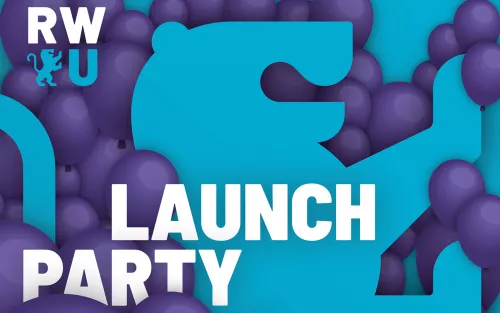
2019
March 2019
Almost 3,600 students are enrolled at the University of Applied Sciences in Weingarten.
June 2019
A comprehensive relaunch project has been launched in order to sustainably shape the future viability of the university. A new corporate design is intended to sharpen the appeal to the various target groups, increase the university's profile in a relevant way and create an independent and modern image.
A major change is the conversion of communication to the English name of the university: Ravensburg-Weingarten University of Applied Sciences - "RWU" for short. The new logo is a word-picture mark formed by the abbreviation RWU and a lion. The lion is derived directly from the coat of arms of the town of Weingarten and combines tradition and regional ties with strength and self-confidence. This is how the university's identity is visually translated.
